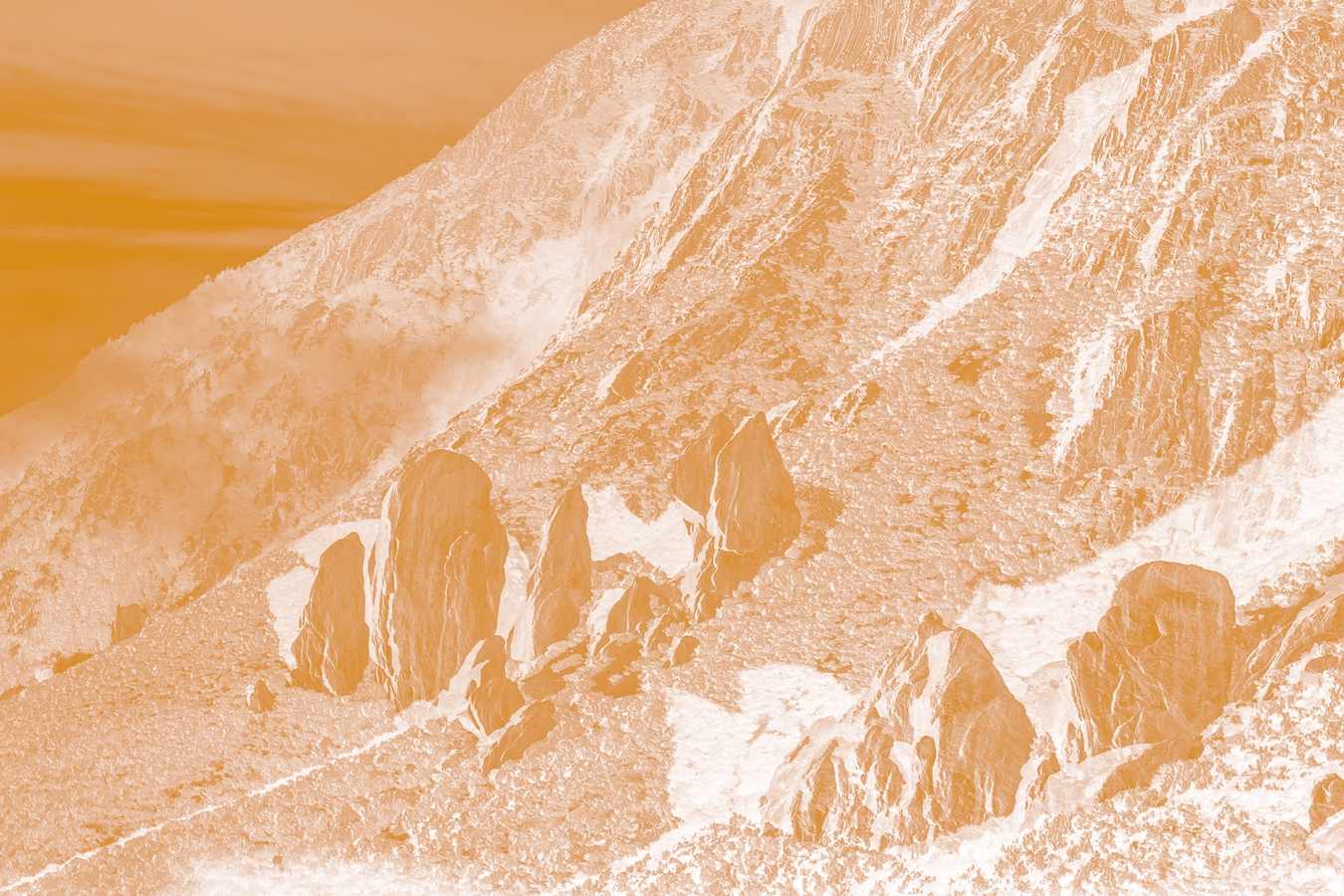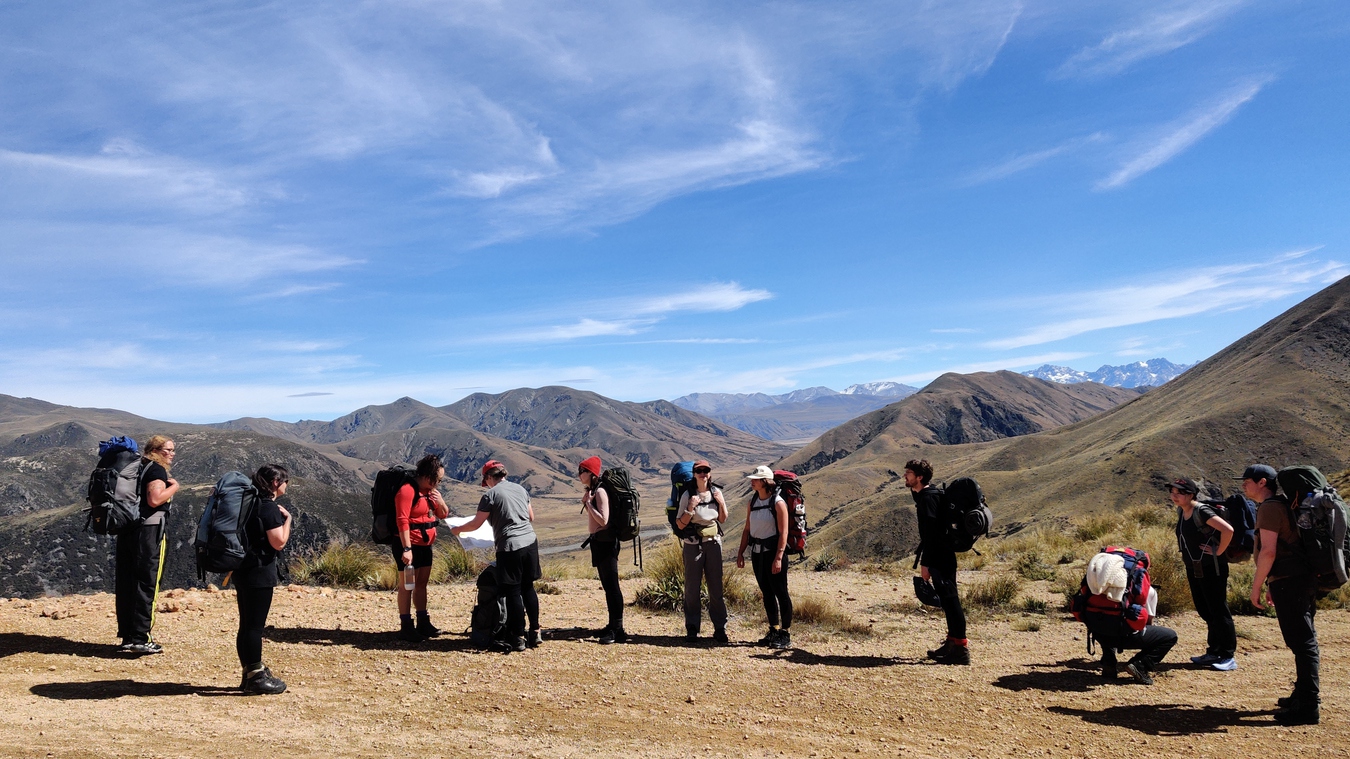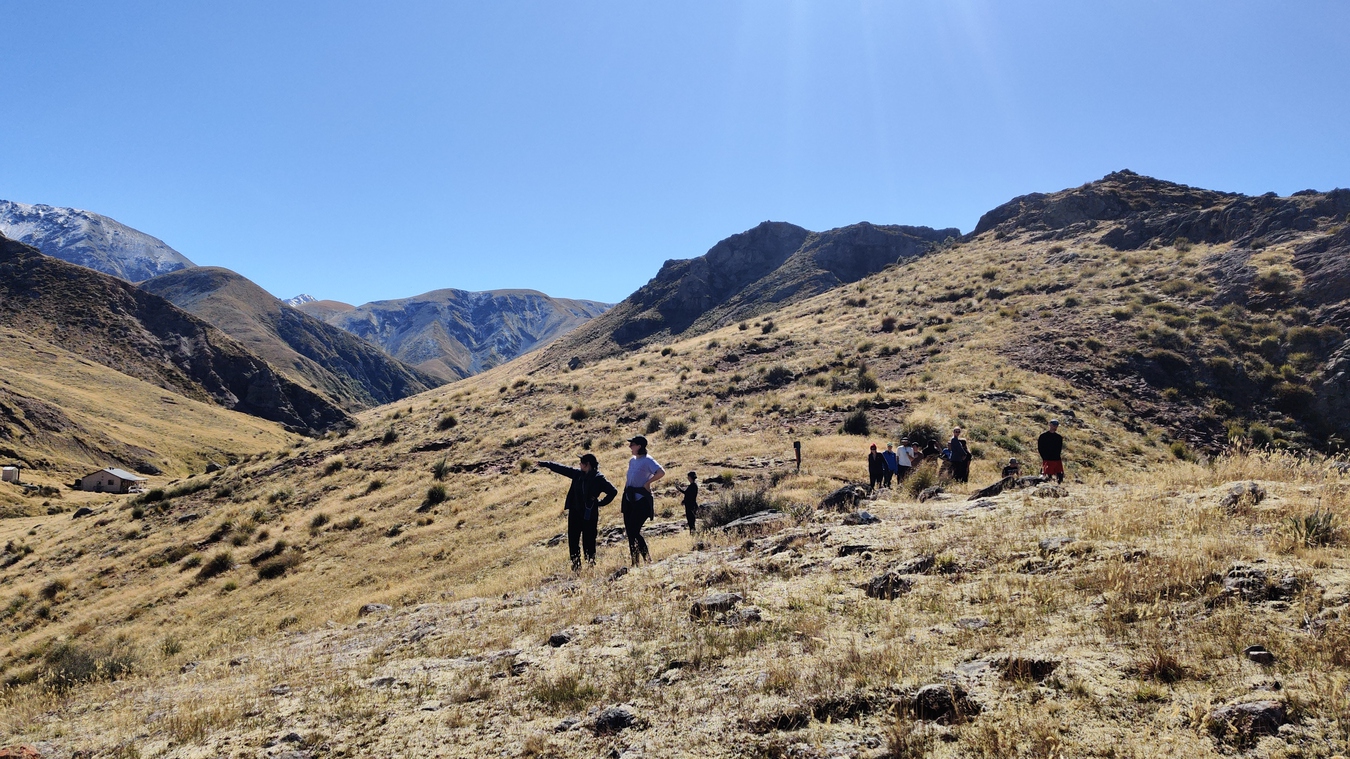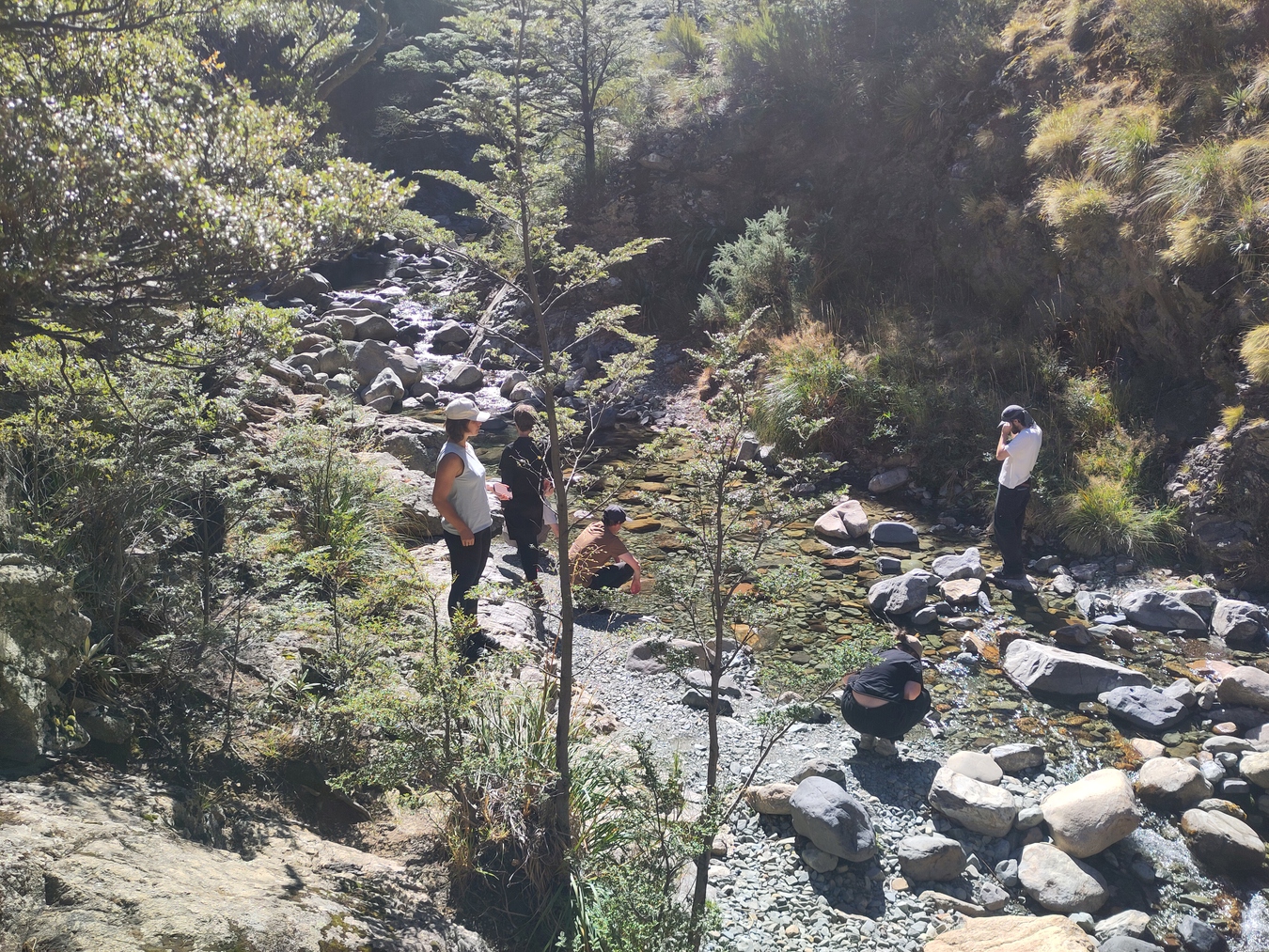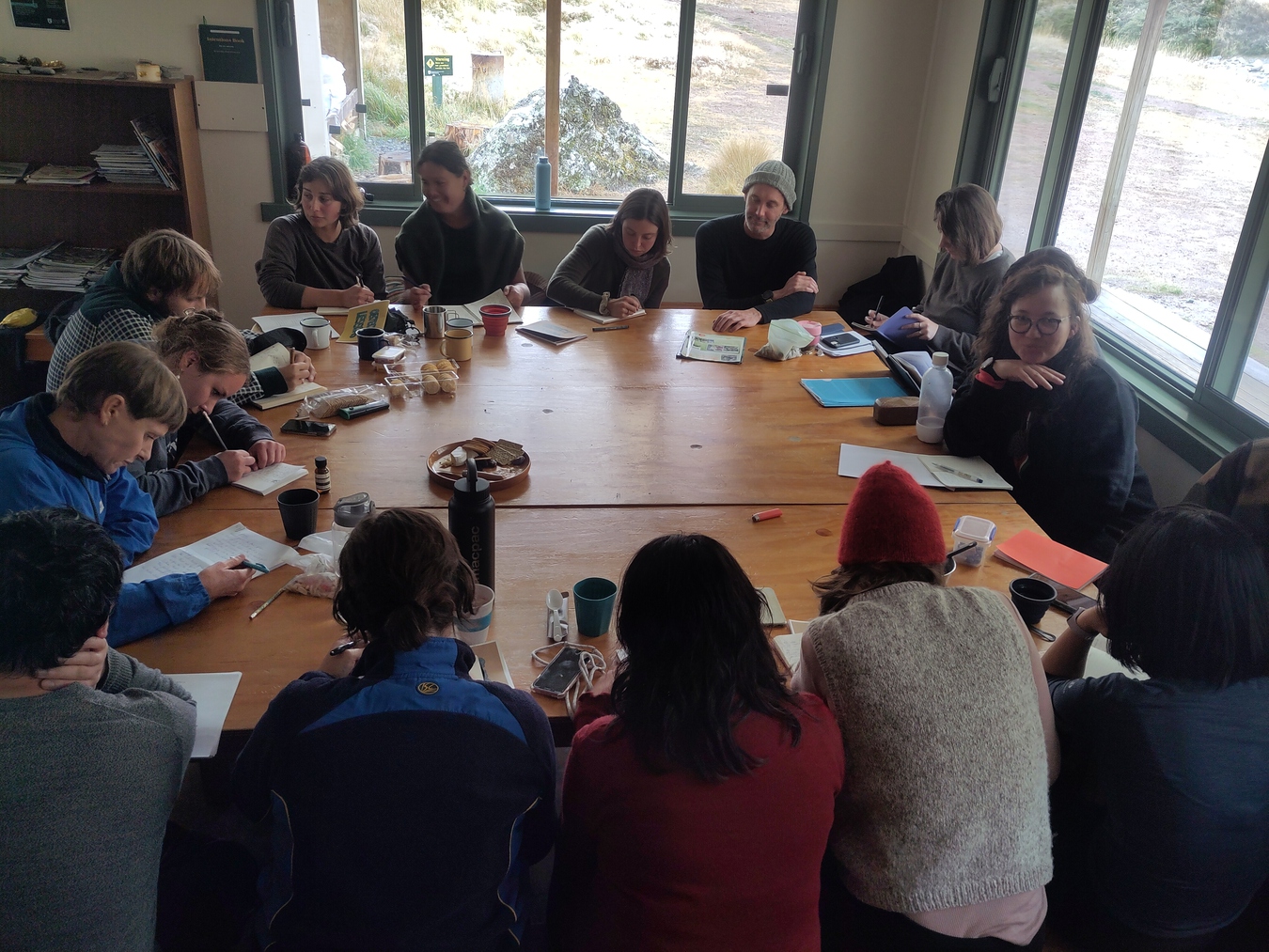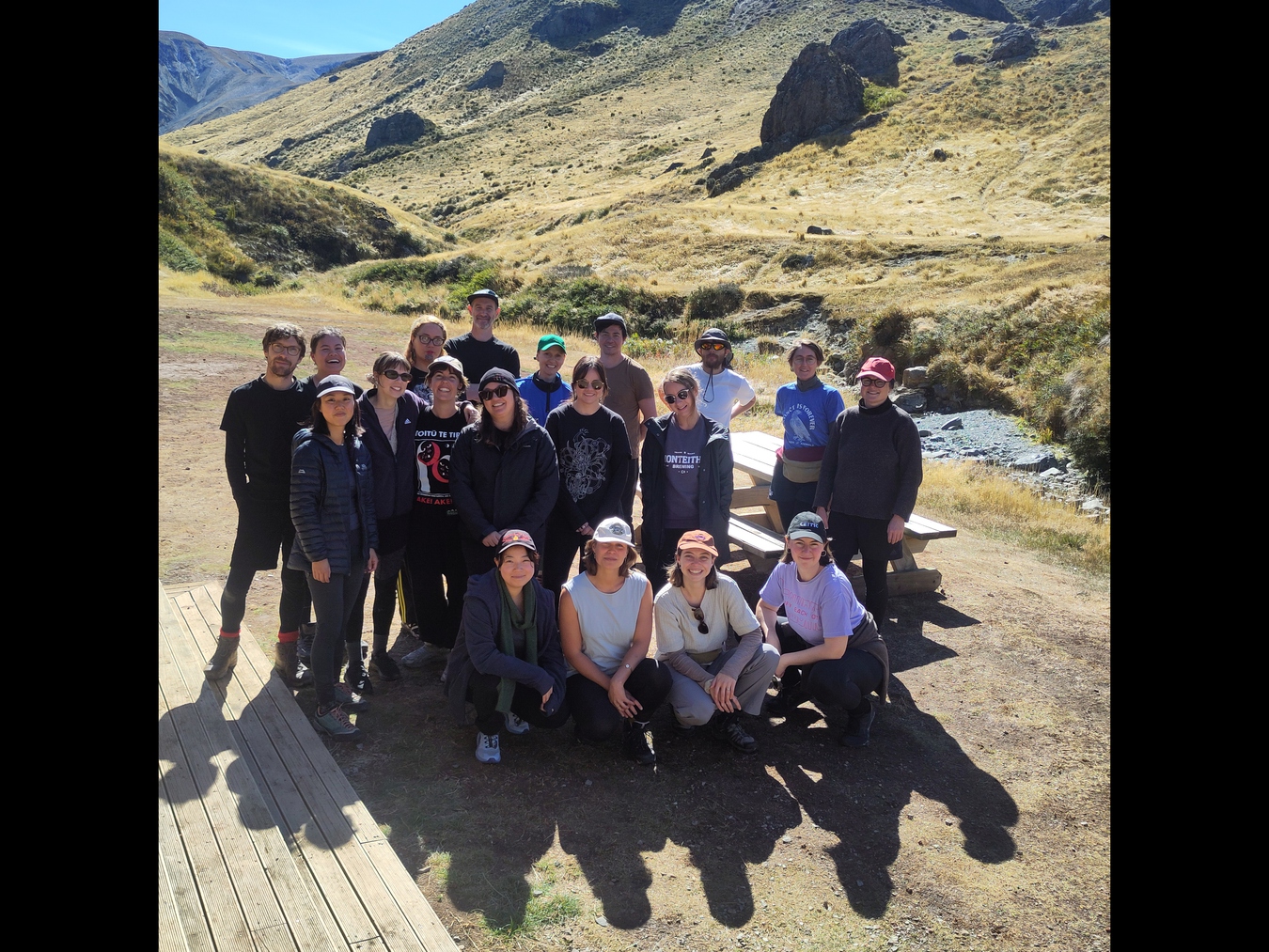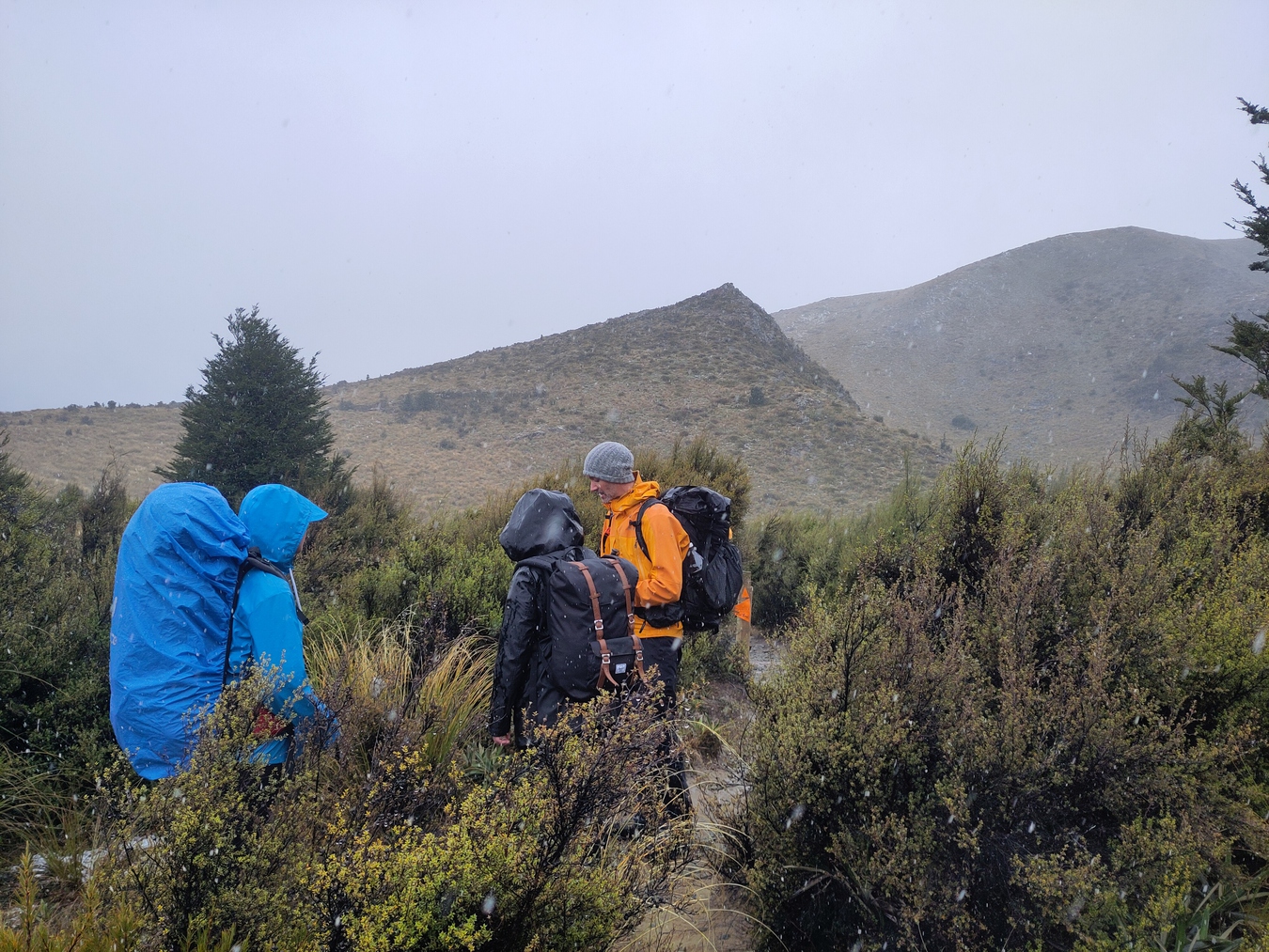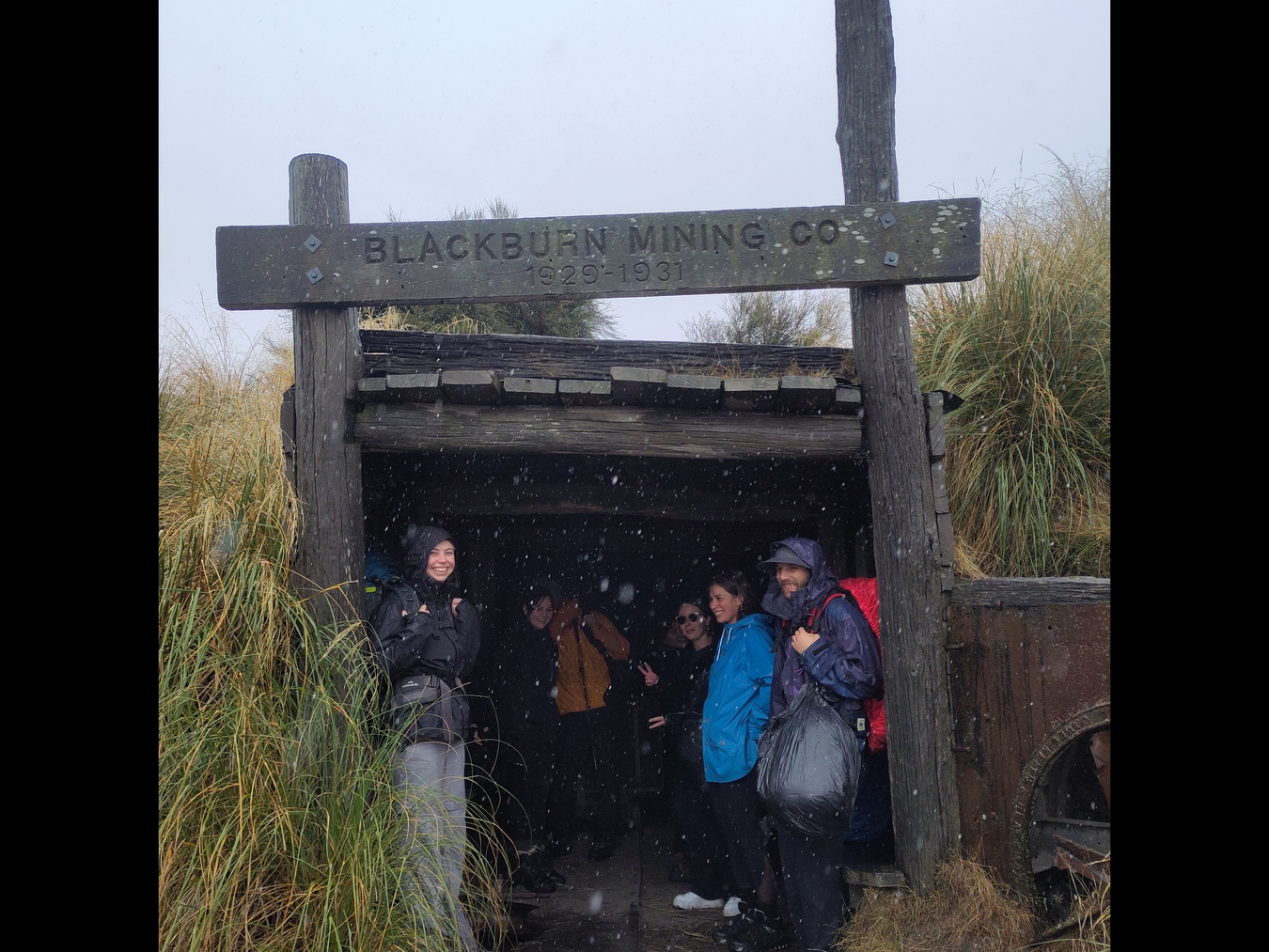Past event
15 March to 16 March
Fri 8am - Sat 3pm
Te Kiekie Writing Workshop 2024
15 March to 16 March. Free entry.
Te Kiekie Writing Workshop 2024
Friday 15 – Saturday 16 March 2024
Woolshed Creek, Te Kiekie Mt Somers
In early 2024, The Physics Room and Blue Oyster hosted an overnight art writing workshop at Woolshed Creek Hut, located at the foot of Kā Tiritiri-o-te-moana. The workshop brought together 12 participants over two days, with a methodology that included reading, walking, listening and writing.
Kaupapa
The impetus for this workshop was to sharpen our senses and the relationships we build as writers by more clearly situating ourselves in the places and communities from which we write: as manuhiri, tangata whenua, tauiwi and allies with a common agenda to work/write in resistance to colonising frameworks. Writing can be a solitary or even lonely activity, and spending time together in this way was a chance to form and consolidate connections.
The workshop was facilitated by Cassandra Barnett, Nic Low and Matariki Williams. The geography of Te Waipounamu provided a structure for the workshop. Following whakawhanaunga and breakfast at The Physics Room, the journey began by traversing Kā Pākihi-whakatekateka-a-Waitaha guided by questions of intentionality: who do we write for? How does our writing manaaki or build critical discourse for the artists we address? This was followed by the two-hour long hīkoi around Te Kiekie via Miners Track under an unexpected but welcome snow shower. Arriving at the hut, the chimney evidencing a stoked fire thanks to a sympathetic DOC ranger, we continued the workshops around kai and drying hiking gear. Altogether, the workshop was intended to be an opportunity to collectively develop our understanding of art writing practice as a form of thinking driven by purpose, as consequential and political.
About the facilitators
Cassandra Barnett (Raukawa ki Te Kaokaoroa-o-Pātetere, Ngāti Huri, Pākehā) is a writer, artist, māmā and educator. She writes fiction, nonfiction and poetry about indigenous and diasporic aesthetics, environmental personhood and other futures. Her poetry chapbook How | Hao, about forests and AI, was published in 2021. A second, in collaboration with Kelly Joseph, will be published in early 2024. Ki Mua, Ki Muri, a co-edited book with Kura Te Waru-Rewiri about Toioho ki Āpiti school of Māori visual art was published in 2023. Her poetry and short fiction are published in Tupuranga, Te Whē, Ora Nui, RNZ Reading Room, Turbine | Kapohau, Brief, Huia Short Stories, Landfall, Black Marks on the White Page (Penguin Random House, 2017) and others. Her essays can be found in Te Manu Huna a Tāne (Massey University Press, 2020), The Spinoff, The Pantograph Punch, ATE Journal of Contemporary Māori Art, Counterfutures, South as a State of Mind and many art publications and catalogues.
Nic Low is a writer and arts organiser of Ngāi Tahu Maori and European descent. He whakapapas to Ōraka-Aparima at the bottom of the South Island, and was until recently vice-chair of the Ngāi Tahu Ki Melbourne taurahere group. He and his whānau divide their time between a bush retreat in the Castlemaine National Heritage Park, and Christchurch, NZ. His new book is Uprising, detailing nine walking expeditions into the Ngāi Tahu history of Kā Tiritiri-o-te-moana, New Zealand’s Southern Alps. His first book was Arms Race, a collection of mischievous, polemical short stories. His subjects are wilderness and adventure, technology and power, history and race. Nic’s short fiction, essays and criticism have been published widely in Australia and New Zealand.
Matariki Williams (Ngāi Tūhoe, Ngāti Whakaue, Ngāti Hauiti, Taranaki, Te Atihaunui-a-Pāpārangi) is a doctoral student and freelance curator, writer and editor with a specific interest in ngā toi Māori. She is the co-author of Protest Tautohetohe: Objects of Resistance, Persistence and Defiance (Te Papa Press, 2019), and co-founder of ATE Journal of Māori Art. She is a widely published arts writer including with frieze, Art in America, The Pantograph Punch, e-Tāngata, ArtZone and The Spinoff. Matariki has held multiple governance roles in the arts sector including with Contemporary HUM, Museums Aotearoa, National Digital Forum, the New Zealand Portrait Gallery and is currently serving on the Judith Binney Trust. She was previously Senior Historian Mātauranga Māori at Manatū Taonga and Curator Mātauranga Māori at Te Papa Tongarewa.
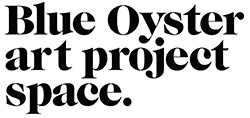
Readings and resources
These are the readings and resources offered by Cassandra Barnett, Nic Low and Matariki Williams to the participants.
Cassandra's readings:
In this folder you'll find a ghazal by Noor Hindi and the essay Listening for a Black Indigenous Love Story by Alexis Pauline Gumbs, as well as a writing prompt.
Nic's readings:
Chapter 4 from his book Uprising: Walking the Southern Alps of New Zealand, 2021. Find this book at your local library or bookstore, or view this chapter here.
Matariki's readings:
This folder contains a poem by Palestinian writer Fadwa Tuqan, a poetic essay by the Indigenous Australian writer Natalie Harkin, and a writing prompt.

